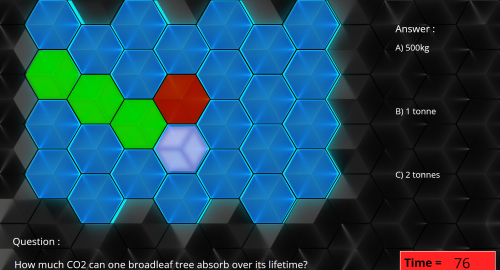
In early December 2023 I co-hosted a webinar with Peter Kilcoyne from Teachermatic on the emergent potential of AI to both improve the quality of the learning experience and reduce teacher workload.
At the time the metaphor of the Sorcerer’s Apprentice summed up how educators were beginning to explore and make the use of AI, particularly to plan, create resources and potentially to formatively assess, giving more time to spend directly working with students to support their learning journey. Then, only 18 months ago, using AI seemed like an option, you could get involved if you wanted to, but now?
Where are we now with AI? – Not yet coming of age but we are learning fast…. though not always acting slow (1 )
Things have continued to move apace in the development and the adoption of AI, both in education and the world of work, where the focus on improved productivity is impacting on the vast majority of higher level job roles, making us all (learners, educators and employees) conductors and co-creators of knowledge, working with a range of AI assistant tools. AI is no longer an option, it is now becoming just part of what we do, how we work and how we learn.
From practice into theory – user driven design in the development and use of AI – making it work for you and your learners
Personalised learning is increasingly seen as central in maximising the potential of AI enabled learning and, when well-planned and carefully considered, this research, investigative and critical approach puts the learner central to navigating their own learning journey.
For both young adults, and older adults in work or looking to upskill or career change, partnerships between industry tech companies and education are shaping new learning models. For both short term upskilling, reskilling and on longer programmes of study, learning to learn and transferrable skills are now becoming paramount, particularly for young adults who are moving beyond the exam system towards the world of work. Whatever your career aspirations or current job role, there is more focus on self-directed and individualised learning and on how AI can help make this work for educators to support learners through their learning journey.
Research informed by practice – shaping excellence of the future
In April 2025, at request from our clients, we hosted our second Shaping Excellence CPD session with a focus on developing engaging theory lessons and the practical use of AI in post 16 education.
Research Fellow and Advanced Practitioner, Jen Deakin (2) shared her action research on the use of AI in her own and colleagues practice at Runshaw College. Jen shared with us her wider reflections on future of AI for learning and assessment and kindly shared her resources with colleagues. These resources, designed by a teacher for teachers, offer practical approaches to the adoption of AI to support high quality learning and assessment.

During the session, Jen presented two recent research projects exploring the transformative impact of AI on Further Education. The first project, titled “From chalkboards to chatbots,” examined practical applications of AI tools to reduce teacher workload. The research highlighted AI’s potential in streamlining lesson planning, enhancing formative assessment, and simplifying resource creation. At Runshaw College, these insights have informed a comprehensive CPD programme, introducing staff to innovative tools such as Microsoft Copilot and how AI can be used for assessment, resource creation and productivity. This initiative has led to a noticeable increase in teacher enthusiasm, confidence, and AI adoption across various educational tasks.
Jen is currently studying her PhD, and her current project, “A call for a renaissance in assessment,” addresses the evolving challenges posed by AI-driven plagiarism, notably the limitations of traditional plagiarism detection tools and methods. This research advocates for redefining assessment practices by prioritising durable and foundational skills such as critical thinking, creativity, collaboration, and reflection. Recommended methods include AI-enhanced assessment, interactive assessments like debates, oral examinations, peer reviews, and collaborative projects. These approaches promote authenticity in student work and ensure assessments remain effective and meaningful in the age of digital innovation and generative AI technologies.
AI – designing gamified activities & strengthening retention of knowledge aspects
Dr Roger Clark then talked about his own learning journey, in using AI for research and development of resources. He then demonstrated a practical approach to using AI (Claude) as a collaborator, to quickly create multiple choice quizzes, using a simple quiz tool that teachers can use and adapt in context.

These base knowledge quizzes can be used in preparation for practical workshop lessons or post lessons to review and revisit key knowledge elements. This type of multiple-choice questions also mirrors (at a lower level) summative assessments used by awarding organisations to assess knowledge elements of specific units of their course.
Being able to access learning activities through a range of devices from smart phones, laptops to large screens or in immersive environments, allows students to reinforce their basic knowledge through gamified approaches that both engage and challenge. Prior to AI, bespoke subject specific multiple-choice quizzes were time consuming to create. Effective use of AI can create these types of questions in minutes, not hours, with the teacher just needing to sense-check the questions before uploading into the quiz tool.
But what about higher level learning? Where are we now with the impact of AI on assessment models and do externally set exams really demonstrate that students have in-depth knowledge and can apply this in context of their own research and professional practice?
AI and Assessment – Is the apprentice becoming the master of their own learning or just creating an illusion of knowing?
At a recent meeting with senior colleagues in a large HE institution there was some discussion on how AI is impacting on assessment, even on externally set timed written exams, with answers too similar in content and structure, indicating the use of AI to provide model answers learned by rote.
It is clear that students, particularly those who are resource rich, are increasingly confident in their use of AI and it is no surprise that this now includes preparation for externally set timed exam questions. Learning by rote, producing the standard model answer, is extensively taught throughout the school exam system, and is this now a learned skill that young adults are applying to their learning in higher education?
This poses some key questions:
- Is the use of AI for exam preparation a negative step or is it demonstrating, by rote learning, at least a minimal level of knowledge of a subject?
- In applied subjects, where being able to demonstrate and use knowledge in context of professional practice, is a timed exam approach a viable method of assessment?
- What assessment methods would better serve learners in moving through learning into aspirational next steps and to provide robust assessment of their current level of attainment to support their progression into further learning and/or work?
More questions than answers but it is clear that by necessity, as educators, we need to become confident conductors in our use of AI and in our design of curriculum and assessments that enable students to reach their own level of mastery, in both AI and their chosen subject.
Please note this blog was written without the guidance of Claude, Chat GPT, Co-Pilot or any other generative AI tool but if I was to take this further (into informed research) I know who I would talk to!
Thank you to colleagues from across the wider education community who have contributed to, and are continuously informing, our thinking. Collectively we are learning faster than we could ever have imagined.